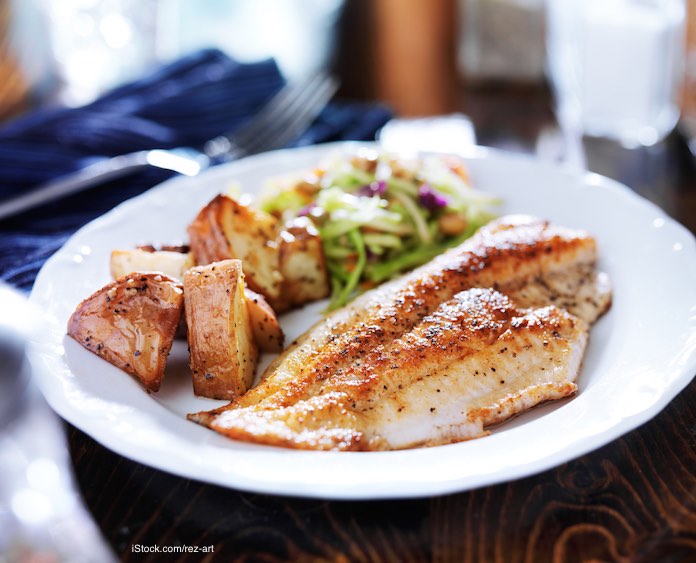Consumer Reports has asked experts on food safety about any link between coronavirus and food. There is currently no evidence that it is transmitted via food, accord to Dr. Donald Schaffner, a distinguished professor in the department of food science at Rutgers University. Authorities in this field agree. The CDC, FDA, Department of Agriculture, and the World Health Organization all say that food is not a known source of transmission.

Still, everyone needs to practice good food safety habits: Wash your hands thoroughly when working with food. Prevent cross-contamination. Clean utensils and surfaces as you work. Cook food to safe final internal temperatures. And refrigerate leftovers promptly.
You really don’t want to get a foodborne illness now, when hospitals are nearing capacity with coronavirus patients.
So, it’s unlikely that coronavirus through food, uses someone has coughed directly on it. Transmission. is still unlikely if that happens, since viruses don’t grow on food. They need a living host to grow and replicate.
Experts believe that the virus will be destroyed by heat. Most theories on the temperature needed come from a 2004 study on the SARS virus. The key temperature appears to be 149°F for 3 minutes, although earlier estimates were 136°F. These temperatures are all below the safe final internal temps for most foods.
There is no evidence that meats can carry the virus. Scientist this that the virus first made the jump from animals to humans via live animals.
Another question is about foods that are eaten raw. Once again, if someone sneezes on a carrot and you pick it up and touch your face, you could get sick. People at higher risk for COVID-19 complications may want to cook produce before eating it.
Some people have been washing food with soap. But that isn’t recommended, since soap can make you sick if you don’t rinse it off. Vinegar and produce washes don’t kill the virus.
Then there’s the issue of food packaging. It has not been seen as a source of transmission. A study published in the New England Journal of Medicine on March 17, 2020 found that even though it survives for hours or days on cardboard, steel, and plastic, it degrades quickly. There has to be enough viable particles on an object to infect you.
Don’t be concerned about getting the virus from imported goods. Any packaging that may carry the virus will become inactive during transport.
If a store employees tests positive for the virus, you don’t have to toss your food. The FDA doesn’t think that there will be any recalls of food for this reason.
Takeout and delivery are safe options for getting food. Remember, the main risk is being around other people. When you get food, transfer it to a plate or an oven-safe container if you want to reheat it, throw the container away, then wash your hands.
So feel more assured that there is likely no link between coronavirus and food, but still follow these steps after shopping: wash your hands when you get home, unpack groceries, wipe down glass jars, plastic tubs, and cans with a disinfecting wipe, put the groceries away, clean the counter, and wash your hands.




